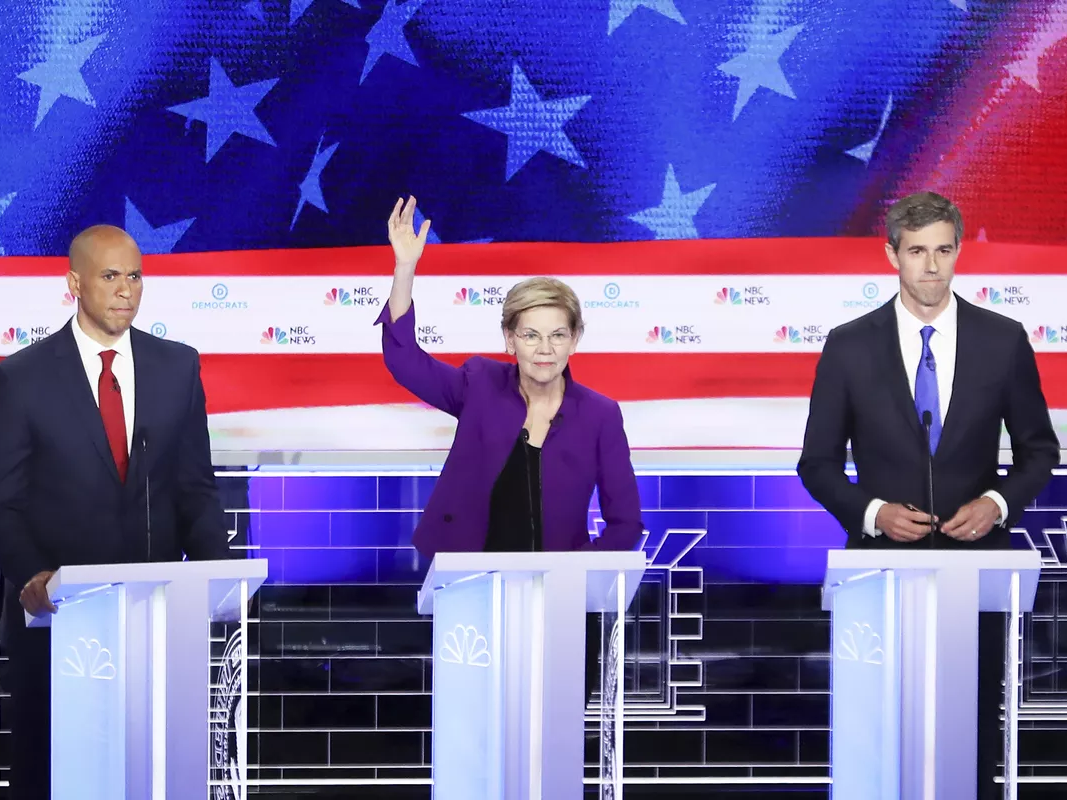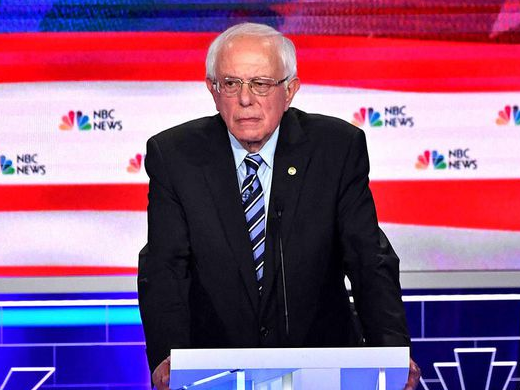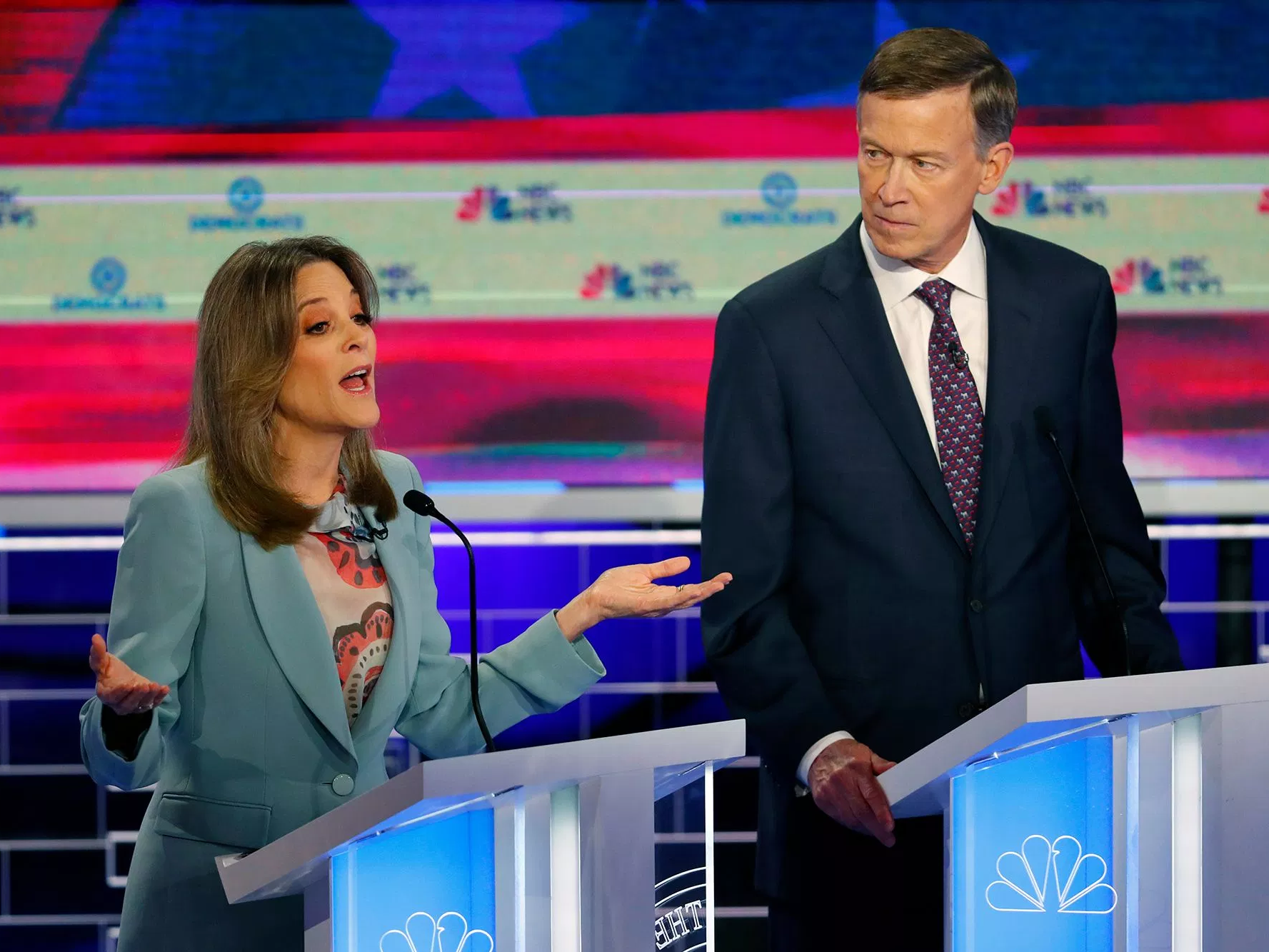
The Epsilon Theory Election Index is our venue for the regular analysis of narratives about US elections, candidates and key issues. Our goal is not to sway, influence or fact-check, but to help you to become a more informed consumer of news - to help you make up your own damn mind.
Everyone complains that their favorite candidate isn’t being treated fairly in the media. It’s the Bernie Bros’ turn…but are they right?
The 2020 Election Narrative is Identity. Through July, Bernie Sanders owned that narrative. That has changed. The on-narrative candidate is now Elizabeth Warren.
This is the fourth installment of Epsilon Theory’s Election Index. Our aim with the feature is to lay as bare as possible the popular narratives…
The first debates have come and gone, and winners and losers identified. Yet in narrative world, we see a slightly different story. We learn about it in the June 30th edition of Epsilon Theory’s Election Index.
In which we call the Prime Minister of New Zealand, see emerging narratives about identity everywhere, leave issues and policies behind, and are told that the torch is being passed from old, heterosexual white men.
We discuss the narratives emerging in media from the first debate, from eye rolls to Spanish lessons, and from an economy that “doesn’t work for everyone” to language of equality and human rights.
What if there was a way to spot who would jump in the GOP primary polls back in June 2015? What if we could spot something in the way that the crowd watched the crowd talk about the candidates. What if we could imagine what that meant for this election and how we process information about it?
Elizabeth Warren is among the front-runners in polls, but in media, a cohesive, connected narrative has yet to form. More importantly, even as attention to her campaign has grown, the sentiment attached to her ideas in media has declined sharply. It is a problem shared by other women candidates that we think should guide readers to consume news cautiously.
Bernie Sanders isn’t leading in the polls. He may also be the most polarizing candidate – again. But don’t tell the political media, whose Sanders content thus far in the primary process has the strongest, most positive narrative of any candidate. And it’s not close.
Some few months into primary season, Joe Biden is the Democratic front-runner. But his narrative isn’t – it remains distinct from the issues that appear to be defining the written and spoken dialogue about the election. Above all, it remains distinctly negative. Will the left-pivot gambit pay off?
This is the second installment of Epsilon Theory’s new monthly feature – the ET Election Index. Our aim with the feature is to lay as bare as possible the popular narratives governing the US elections in 2020. That includes narratives concerning policy proposals and candidates found in the news, opinion and feature content produced by national, local and smaller outlets.
Today we introduce the Epsilon Theory Election Index, a service intended to help you spot when you are being told how to think about the upcoming election, and to help you make up your own damn mind about it.
In this edition we introduce the key terms of our analysis and show you how the early days of the Democratic primary season are playing out.
In short? Whatever polls are saying, the narrative from the media appears to be that progressive is in, and Biden ain’t it.











